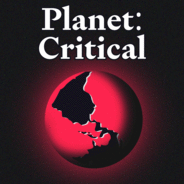In July, I recorded a roundtable with six of my former guests. The aim was to create an interdisciplinary assessment of the climate crisis, and what to do about it. Today, you can listen to the roundtable here, or watch it on Youtube.There were six fascinating presentations, each followed by a round of questions. This is what to expect:Maximum Power Principle in Biology & EconomicsCarey King, research scientist and Assistant Director at the University of Texas Energy InstituteGlobal Climate CompensationHenrik Nordborg, Physics Professor and Renewable Energy and Environmental Technology Program Director at the Eastern Switzerland University of Applied SciencesMEER & Warming MitigationYe Tao, Physicist and FounderCarbon Credit CurrencySteve Keen, Economist and AcademicEconomy 3.0: Networked Societies & Energy StandardChris Cook, Senior Research Fellow at the Institute for Security and Resilience Studies at University College LondonOligarchy & Energy Systems PrinciplesSally Goerner, Director of Edinburgh University’s Planetary Health LabPlanet: Critical is 100% independent and reader-funded. If you value it, and have the means, become a paid subscriber today!© Rachel Donald Get full access to Planet: Critical at www.planetcritical.com/subscribe

PolitikWirtschaftTalk
Planet: Critical Folgen
Planet: Critical is the podcast for a world in crisis. We face severe climate, energy, economic and political breakdown. Journalist Rachel Donald interviews those confronting the crisis, revealing what's really going on—and what needs to be done. www.planetcritical.com
Folgen von Planet: Critical
198 Folgen
-
Folge vom 22.12.2022Solving the Climate Crisis | Roundtable
-
Folge vom 15.12.2022Message From The Future | Wendy SchultzWendy Schultz is an academically trained futurist with over thirty-five years of global foresight practice. Director at Infinite Futures, she has designed futures research projects for NGOs, government agencies, and businesses.Wendy and I discuss the Law in the Emerging Bio-Age report she recently published, which asked how legal structures can support second chances at improving human relations with living systems and our planet. We also discuss how to bridle the finance industry to support a just transition, the role of activism, governments’ relationship to information, and, more generally, how to solve wicked problems.Support Planet: Critical: www.planetcritical.com Get full access to Planet: Critical at www.planetcritical.com/subscribe
-
Folge vom 08.12.2022Why Scientists Must Rebel | Aaron Thierry“The public do trust science and scientists more than probably any other social group, according to social surveys. The public have expectations on scientists that they will speak out if they see issues of national or social concern because they expect that scientists are working in the public good.“So what’s the responsibility on us as academics then, knowing what we know, knowing that we're heading for disaster, knowing that that governments aren't doing nearly enough to avert it, in fact are actually pouring fuel on the fire? What do we do? And I think for us to not then speak out about that, to not resist, that would be to really fail in our duty, both as scholars, but also as citizens.”Aaron Thierry is an ecologist and environmental activist. After spending years on the frontline of the climate crisis in the Arctic, Aaron now researches the communication strategies of activist organisations, examining the interplay between reason and emotion in the climate emergency movement.Aaron joins me to discuss his research, explaining the positive impact of scientists rebelling against government inaction, and why all academics must broaden their understanding of their role as educators to warn their students of the realities of the crisis. Aaron explains the benefits of a decentralised activist movement sharing one single coherent message—and, in doing so, reveals the true sunken cost of fossil fuel infrastructure that will likely send us well over the 1.5 degree limit. Planet: Critical is 100% independent and reader-funded. If you value it, and have the means, become a paid subscriber today!© Rachel Donald Get full access to Planet: Critical at www.planetcritical.com/subscribe
-
Folge vom 01.12.2022Information Pollution | Dahr Jamail“How long do we keep pretending that capitalism works? How long are we going to keep pretending that there is such a thing as objectivity? How long are we going to keep pretending that we're not in a runaway climate crisis? Systems are literally collapsing – the UK is in massive crisis, the United States is in massive crisis. These countries are seen as the leaders of the western world in a lot of ways and the reality is neither country is even a democracy anymore. We're a corporatocracy at best.“What happens in countries where there's not legitimate journalism in the mainstream is you end up with a society that's overwhelmed with information. In the United States, huge swaths of the country can't even tell truth from fiction, which is something that Hannah Arendt in Origins of Totalitarianism warned: the best subject for totalitarian rule is not someone with a certain political bias, but someone who literally just can't tell truth from fiction anymore.”Dahr Jamail is an award-winning journalist and author, who was one of the few independent journalists to report extensively from the ground during the 2003 invasion of Iraq. Dahr later became a climate reporter, tracking climate disruption around the world and collating his knowledge in the wonderful book, The End of Ice.Dahr joined me to discuss what’s going wrong with journalism and how to create a journalism which can respond to the climate crisis. We discuss information pollution in the mainstream media, the fallacy of objectivity, the corruption of profit-maximising goals, self-selecting biases, and how the abject failures of the mainstream media have disempowered, disengaged and confused populaces around the world—making them ripe for manipulation by populists.Planet: Critical investigates why the world is in crisis—and what to do about it.© Rachel Donald Get full access to Planet: Critical at www.planetcritical.com/subscribe
